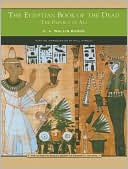Pirates of Barbary: Corsairs, Conquests and Captivity in the Seventeenth-Century Mediterranean
The stirring true story of the seventeenth-century pirates of the Mediterranean—-the forerunners of today's bandits of the seas—-and how their legendary conquests shaped the divisions between Christianity and Islam.
Search in google:
The stirring true story of the seventeenth-century pirates of the Mediterranean—the forerunners of today's bandits of the seas—and how their legendary conquests shaped the divisions between Christianity and Islam.It's easy to think of piracy as a romantic way of life long gone—if not for today's frightening headlines of robbery and kidnapping on the high seas. Pirates have existed since the invention of commerce itself, but they reached the zenith of their power during the 1600s,when the Mediterranean was the crossroads of the world and pirates were the scourge of Europe and the glory of Islam. They attacked ships, enslaved crews, plundered cargoes, enraged governments, and swayed empires, wreaking havoc from Gibraltar to the Holy Land and beyond.Historian and author Adrian Tinniswood brings alive this dynamic chapter in history, where clashes between pirates of the East (Tunis, Algiers, and Tripoli) and governments of the West (England, France, Spain,... Publishers Weekly Forget the pirates of the Caribbean: their Old World brethren were an altogether more colorful and fearsome lot, according to this swashbuckling study. Historian Tinniswood (The Verneys: A True Story of Love, War, and Madness in Seventeenth-Century England) revisits the kleptocratic heyday of the Barbary states--Tripoli, Tunis, Algiers, bits of Morocco--which offered fortified harbors to pirates and in turn built their economies around the sale of stolen cargoes and captives. The buccaneers, who kidnapped whole villages as far north as Ireland and Iceland, were denounced as the scourge of Christendom. Yet most of the "Turkish" pirates Tinniswood highlights were British, Dutch, or Italian renegades who sometimes bought pardons and obtained naval commands from their native countries. The million Christians sold into bondage often converted to Islam and became pillars of the North African economy. The author makes this story an entertaining picaresque of crime, combat, and moral compromise; fierce sea battles and daring escapes alternate with corrupt hagglings as European governments vacillate between gunboat diplomacy and offering tribute for the release of their enslaved countrymen. Tinniswood gives us both a rollicking narrative and a rich brew of early modern maritime history. Illus., map. (Nov.)
\ Ian W. TollAbove all, Pirates of Barbary reminds us that history, whatever else it is, is also a genre of literature. It always has been, ever since it was first written down by the ancient chroniclers. You can scour it all you like for insights, arguments and conclusions. But it's still worth reading if only because it's bloody good entertainment.\ —The New York Times\ \ \ \ \ Publishers WeeklyForget the pirates of the Caribbean: their Old World brethren were an altogether more colorful and fearsome lot, according to this swashbuckling study. Historian Tinniswood (The Verneys: A True Story of Love, War, and Madness in Seventeenth-Century England) revisits the kleptocratic heyday of the Barbary states--Tripoli, Tunis, Algiers, bits of Morocco--which offered fortified harbors to pirates and in turn built their economies around the sale of stolen cargoes and captives. The buccaneers, who kidnapped whole villages as far north as Ireland and Iceland, were denounced as the scourge of Christendom. Yet most of the "Turkish" pirates Tinniswood highlights were British, Dutch, or Italian renegades who sometimes bought pardons and obtained naval commands from their native countries. The million Christians sold into bondage often converted to Islam and became pillars of the North African economy. The author makes this story an entertaining picaresque of crime, combat, and moral compromise; fierce sea battles and daring escapes alternate with corrupt hagglings as European governments vacillate between gunboat diplomacy and offering tribute for the release of their enslaved countrymen. Tinniswood gives us both a rollicking narrative and a rich brew of early modern maritime history. Illus., map. (Nov.)\ \ \ From the Publisher"Tinniswood gives us both a rollicking narrative and a rich brew of early modern maritime history." —-Publishers Weekly\ \ \ \ \ Library JournalEnglish writer/historian Tinniswood (www.adriantinniswood.co.uk) tells the fascinating story of the 17th-century pirates of the Barbary Coast, who were at the height of their influence at a time when the Mediterranean served as a major commercial roadway. He focuses on the clashes between pirates of the East (Tunis, Algiers, Tripoli) and the governments of the West (England, France, Spain), also exploring how the pirates' conquests continue to inform the conflict between Christianity and Islam. Clive Chafer's acting chops shine in his impressive narration of this work that well educates listeners on the crimes, fierce sea battles, corrupt government haggling, and gunboat diplomacy that characterized this era of world history. For scholars, historians, and students, all of whom will be fascinated by how closely piracy of the 1600s resembles today's ongoing experience with crime on the high seas. [The Riverhead hc was described as shedding "new light on an overlooked portion of 17th-century history," LJ 12/10.—Ed.]—Dale Farris, Groves, TX\ \ \ \ \ Kirkus ReviewsExciting history of 17th-century piracy among African city-states.\ Prolific British historian Tinniswood (The Verneys: A True Story of Love, War, and Madness in Seventeenth-Century England, 2008, etc.) demonstrates an excellent grasp of obscure sources in crafting a comprehensive synthesis. He argues that the notorious, reviled "Barbary corsairs" have been historically misunderstood: "An underlying racism and a more overt anti-Islamism make it hard to imagine Captain Blood or Jack Sparrow as North African Muslims." The author theorizes that piracy was state-supported and a key economic requirement for the development of Tunis, Algiers and Tripoli (allied with the Ottoman Empire) and independent Morocco, and further was encouraged as a "sea-jihad," an Islamic counterweight to European ambitions in the Mediterranean. While the British and other European powers belittled the Turks and Moors as savages, the situation was ethically muddied by their intermittent encouragement of privateering during various wars—these governments routinely issued "letters of marque" that essentially gave captains the right of piracy over ships flying enemy colors. Furthermore, both European and Barbary states routinely enslaved and ransomed captives; the specter of white slaves being held by African Muslims inflamed British society and contributed to numerous campaigns. Some of the European attempts blockade Barbary ports became comedies of error; others turned tragic or brutal, such as the French mortaring of Algiers. The pirates themselves were a diverse lot, especially following a 1612 amnesty. Many were British subjects who "turned Turk" (sometimes claiming coercion later when captured), while others were fearless Islamists who viewed attacking European ships as both good business and a strike against infidel encroachment (Tinniswood emphasizes the parallels with contemporary geopolitics only in the preface, regarding Somali piracy, but they are apparent.) This approach was epitomized by a 1631 raid on the Irish coastal town of Baltimore, which enslaved dozens. Throughout, the writing is precise and mordant but also witty, allowing the reader to feel empathy for the rough and absurd lives of these long-ago mariners, and agree with the author's conclusion that whatever the corsairs' faults, a lack of courage was not among them.\ Rigorous and sophisticated.\ \ \








